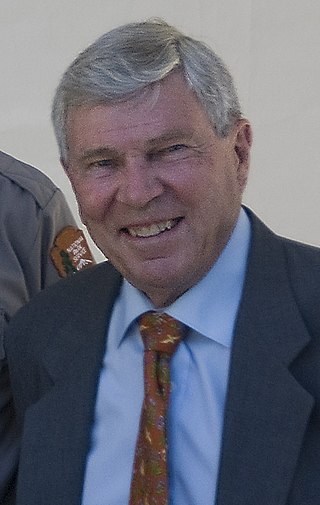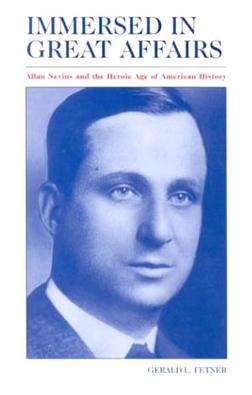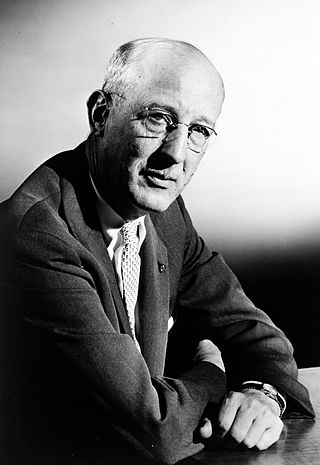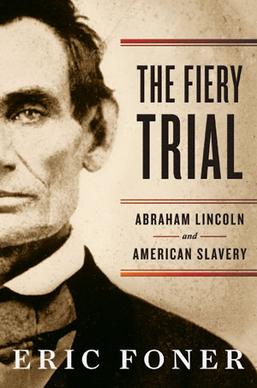
Carl August Sandburg was an American poet, biographer, journalist, and editor. He won three Pulitzer Prizes: two for his poetry and one for his biography of Abraham Lincoln. During his lifetime, Sandburg was widely regarded as "a major figure in contemporary literature", especially for volumes of his collected verse, including Chicago Poems (1916), Cornhuskers (1918), and Smoke and Steel (1920). He enjoyed "unrivaled appeal as a poet in his day, perhaps because the breadth of his experiences connected him with so many strands of American life". When he died in 1967, President Lyndon B. Johnson observed that "Carl Sandburg was more than the voice of America, more than the poet of its strength and genius. He was America."

James Munro McPherson is an American historian specializing in the American Civil War. He is the George Henry Davis '86 Professor Emeritus of United States History at Princeton University. He received the 1989 Pulitzer Prize for Battle Cry of Freedom: The Civil War Era. McPherson was the president of the American Historical Association in 2003.

Joseph Allan Nevins was an American historian and journalist, known for his extensive work on the history of the Civil War and his biographies of such figures as Grover Cleveland, Hamilton Fish, Henry Ford, and John D. Rockefeller, as well as his public service. He was a leading exponent of business history and oral history.

John George Nicolay was a German-born American author and diplomat who served as private secretary to U.S. President Abraham Lincoln and later co-authored Abraham Lincoln: A History, a ten-volume biography of the 16th president. He was a member of the German branch of the Nicolay family.

Charles Bruce Catton was an American historian and journalist, known best for his books concerning the American Civil War. Known as a narrative historian, Catton specialized in popular history, featuring interesting characters and historical vignettes, in addition to the basic facts, dates, and analyses. His books were researched well and included footnotes. He won the Pulitzer Prize for History and the National Book Award for Nonfiction in 1954 for his book A Stillness at Appomattox (1953), a study of the final campaign of the war in Virginia and third book in his Army of the Potomac trilogy.

David Herbert Donald was an American historian, best known for his 1995 biography of Abraham Lincoln. He twice won the Pulitzer Prize for Biography for earlier works; he published more than 30 books on United States political and literary figures and the history of the American South.

Eric Foner is an American historian. He writes extensively on American political history, the history of freedom, the early history of the Republican Party, African American biography, the American Civil War, Reconstruction, and historiography, and has been a member of the faculty at the Columbia University Department of History since 1982. He is the author of several popular textbooks, such as the Give Me Liberty series for high school classrooms. According to the Open Syllabus Project, Foner is the most frequently cited author on college syllabi for history courses. According to historian Timothy Snyder, Foner is the first to associate the storming of the Capitol on January 6, 2021 with section three of the Fourteenth Amendment to the Constitution.
The sexuality of Abraham Lincoln has been the topic of historical speculation and research. No such discussions have been documented during or shortly after Lincoln's lifetime; however, in recent decades, some writers have discussed purported evidence that he may have been homosexual.

Abe Lincoln in Illinois is a play written by the American playwright Robert E. Sherwood in 1938, based principally on the 1926 biography Abraham Lincoln: The Prairie Years by Carl Sandburg. The play, in three acts, covers the life of President Abraham Lincoln from his childhood through his final speech in Illinois before he left for Washington. The play also covers his romance with Mary Todd and his debates with Stephen A. Douglas, and uses Lincoln's own words in some scenes. Sherwood received the Pulitzer Prize for Drama in 1939 for his work.

Thomas Lincoln Sr. was an American farmer, carpenter, and father of the 16th president of the United States, Abraham Lincoln. Unlike some of his ancestors, Thomas could not write. He struggled to make a successful living for his family and faced difficult challenges in Kentucky real estate boundary and title disputes, the early death of his first wife, and the integration of his second wife's family into his own family, before making his final home in Illinois.
Nancy Hanks Lincoln was the mother of U.S. President Abraham Lincoln. Her marriage to Thomas Lincoln also produced a daughter, Sarah, and a son, Thomas Jr. When Nancy and Thomas had been married for just over 10 years, the family moved from Kentucky to western Perry County, Indiana, in 1816. When Spencer County was formed in 1818, the Lincoln Homestead lay within its current boundaries. Nancy Lincoln died from milk sickness or consumption in 1818 at the Little Pigeon Creek Community in Spencer County when Abraham was nine years old.
The following are the Pulitzer Prizes for 1940.

Don Edward Fehrenbacher was an American historian. He wrote on politics, slavery, and Abraham Lincoln. He won the 1979 Pulitzer Prize for History for The Dred Scott Case: Its Significance in American Law and Politics, his book about the Dred Scott Decision. In 1977 David M. Potter's The Impending Crisis, 1848-1861, which he edited and completed, won the Pulitzer Prize. In 1997 he won the Lincoln Prize.
Carl Sandburg Bibliography
Herbert Mitgang was an American author, editor, journalist, playwright, and producer of television news documentaries.
This bibliography of Abraham Lincoln is a comprehensive list of written and published works about or by Abraham Lincoln, the 16th president of the United States. In terms of primary sources containing Lincoln's letters and writings, scholars rely on The Collected Works of Abraham Lincoln, edited by Roy Basler, and others. It only includes writings by Lincoln, and omits incoming correspondence. In the six decades since Basler completed his work, some new documents written by Lincoln have been discovered. Previously, a project was underway at the Papers of Abraham Lincoln to provide "a freely accessible comprehensive electronic edition of documents written by and to Abraham Lincoln". The Papers of Abraham Lincoln completed Series I of their project The Law Practice of Abraham Lincoln in 2000. They electronically launched The Law Practice of Abraham Lincoln, Second Edition in 2009, and published a selective print edition of this series. Attempts are still being made to transcribe documents for Series II and Series III.

Richard Nelson Current was an American historian, called "the Dean of Lincoln Scholars", best known for The Lincoln Nobody Knows (1958), and Lincoln and the First Shot (1963).

The Fiery Trial: Abraham Lincoln and American Slavery is a historical non-fiction book written by American historian Eric Foner. Published in 2010 by W. W. Norton & Company, the book serves as a biographical portrait of United States President Abraham Lincoln, discussing the evolution of his stance on slavery in the United States over the course of his life. The Fiery Trial, which derives its title from Lincoln's Annual Message to Congress of December 1, 1862, was the 22nd book written by Foner, the DeWitt Clinton Professor of History at Columbia University. It was praised by critics and won the 2011 Pulitzer Prize for History, the Bancroft Prize, and the Lincoln Prize.

The Sandburg House is a private home located on Lake Michigan near Harbert, Michigan. It was listed on the National Register of Historic Places in 1972.
Thomas Harry Williams was an American historian and author. For the majority of his academic career between the 1930s to 1970s, Williams taught history at Louisiana State University. While at LSU, Williams was a Boyd Professor of History from 1953 to 1979. Near the end of his tenure at LSU, the university created the T. Harry Williams Chair of American History. He also taught at extension schools in Wisconsin and at the Municipal University of Omaha.
















